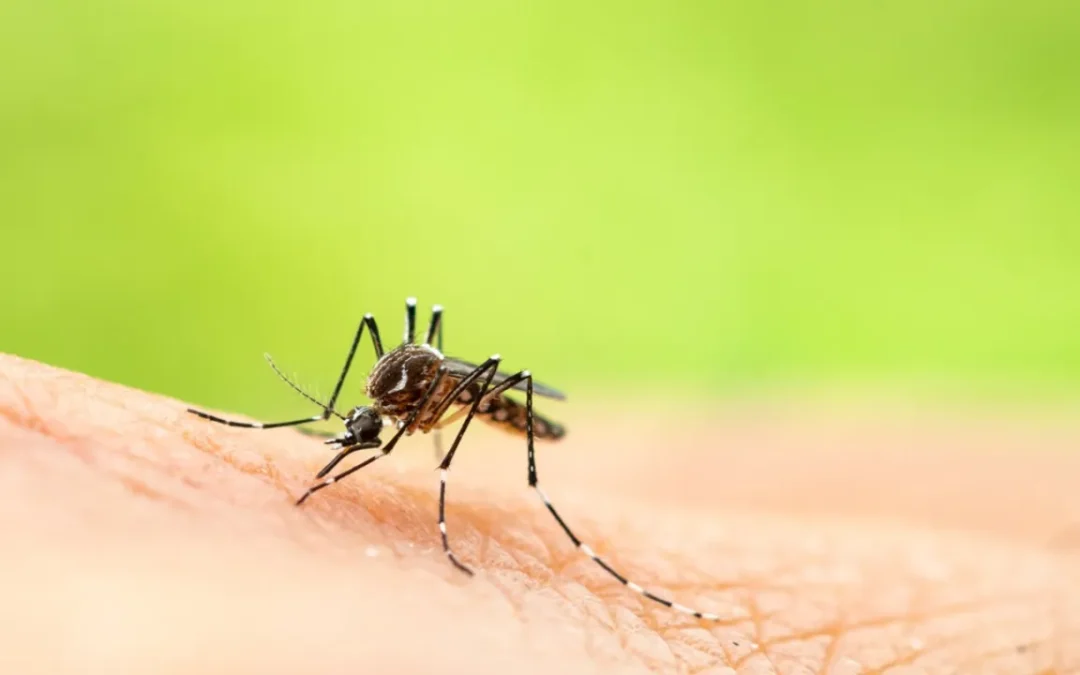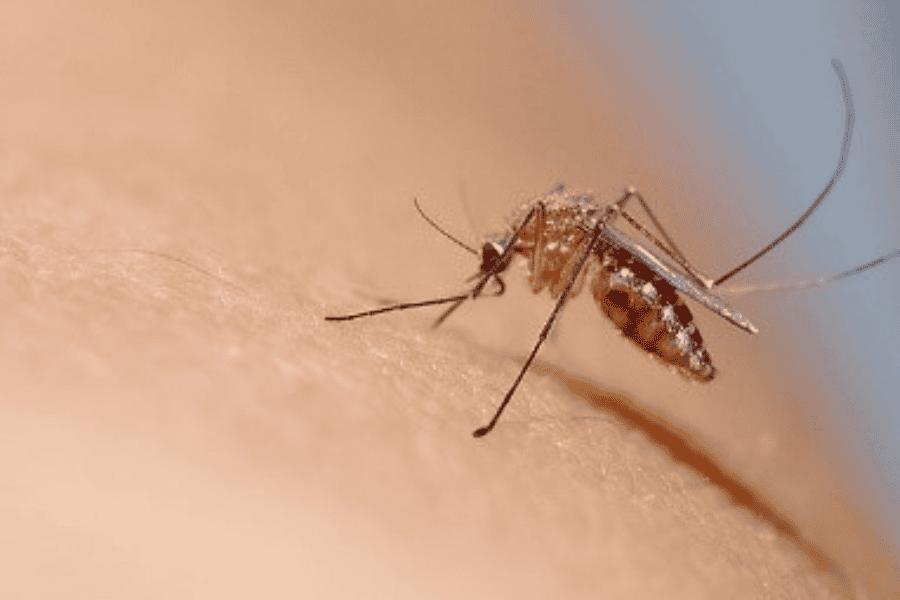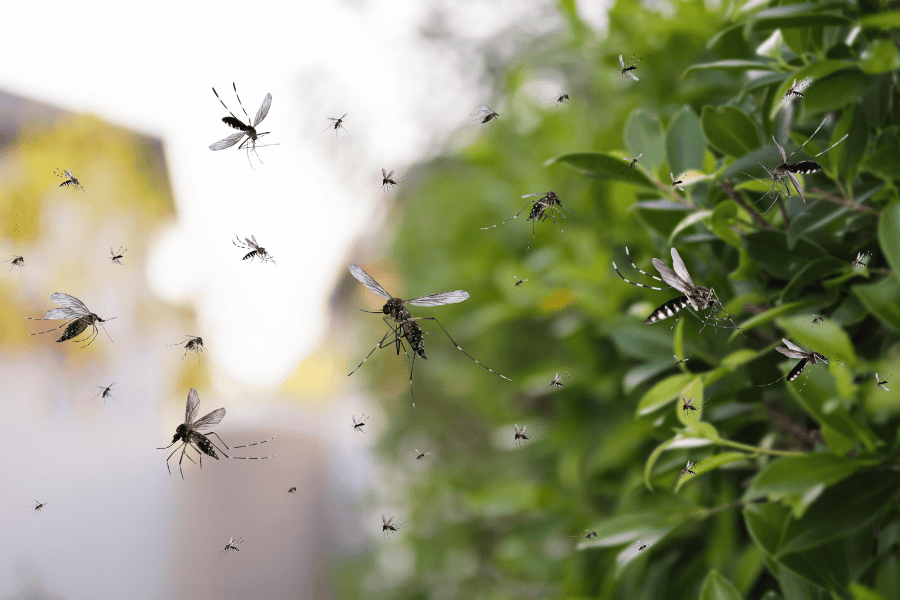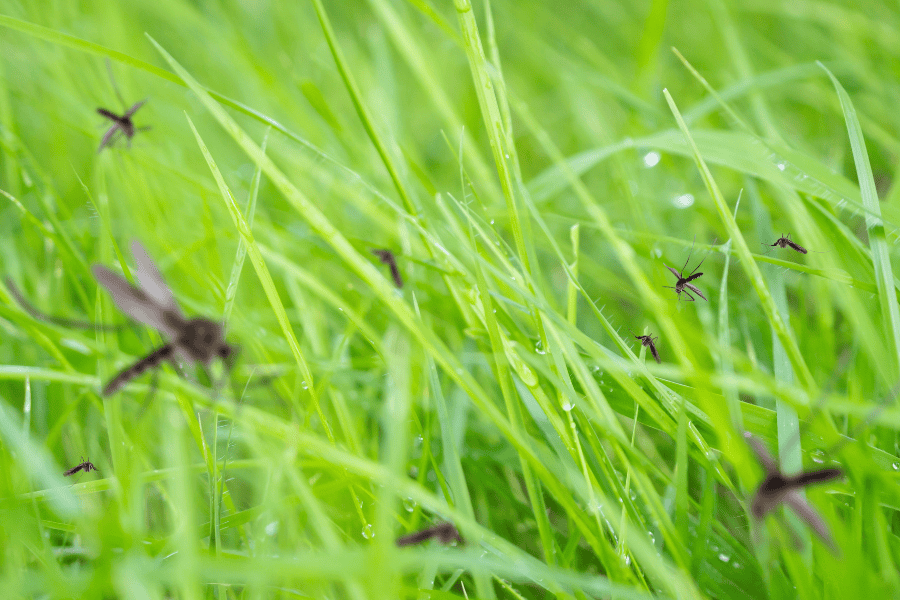READY TO GET STARTED?
REQUEST A FREE ESTIMATE
Fill out the form below or call (888) 466-7849 for a free, no-obligation estimate.

Florida’s tropical climate brings beauty and challenges, with mosquitoes being a major nuisance. These pests disrupt outdoor activities and can spread diseases like West Nile Virus. Fortunately, natural solutions like mosquito-repellent plants can help. Let’s explore the best options for Florida gardens.
Chemical repellents can harm ecosystems, but plants emitting mosquito-deterring scents offer an eco-friendly alternative. They beautify your yard while creating a natural barrier against mosquitoes.
Known as the “mosquito plant,” citronella’s citrusy scent repels mosquitoes.
Thrives in full sun and well-drained soil.
Grows up to 6 feet tall, ideal for borders.
A relative of citronella, it doubles as a culinary herb.
Prefers full sun and sandy soil.
Adds lush greenery to gardens.
Its aromatic oils repel mosquitoes and its blooms add beauty.
Needs well-drained soil and sunlight.
Drought-tolerant, perfect for Florida summers.
Bright flowers with pyrethrum compounds deter mosquitoes and pests.
Easy to grow in full sun.
Great for borders and vegetable gardens.
A culinary herb that masks human odors to repel mosquitoes.
Grows in sunny, moist soil.
Varieties like lemon basil add extra fragrance.
Its strong aroma deters mosquitoes and it’s versatile in the kitchen.
Thrives in partial sun and moist soil.
Best grown in containers to control spreading.
Pair these plants with eco-friendly solutions like the In2Care Mosquito Trap for added effectiveness.
Reduced Chemicals: Protects pollinators and the environment.
Eco-Friendly: Supports local ecosystems.
Aesthetic Appeal: Combines beauty with functionality.
Strategic Placement: Position plants near patios and entryways.
Variety: Mix plants for a layered effect.
Healthy Maintenance: Vibrant plants deter mosquitoes.
Combine Methods: Use water management and traps alongside plants.
Transform your yard into a tropical haven with mosquito-repelling plants like citronella, mint, and marigold. These natural solutions can help you enjoy your outdoor spaces with fewer pests. For expert advice or when the bugs get out of hand, don’t hesitate to reach out to your local pest control pros; they have you covered!

Miami is a city known for its sunshine, vibrant culture, and beautiful outdoor spaces. But with a tropical climate comes an all-too-common nuisance—mosquitoes. For Miami residents, enjoying an evening barbecue or relaxing by the pool often comes with the unwelcome buzz of a mosquito problem. Not only are they annoying, but mosquitoes can also pose significant health risks as carriers of diseases like Zika, Dengue, and West Nile Virus.
If you’ve been battling mosquitoes without success, don’t worry—we’re here to help. This guide will provide practical, effective tips to reclaim your backyard and keep it pest-free, so both you and your family can enjoy the outdoors worry-free.
The mosquito problem in Miami stems largely from its tropical climate. The city’s warm temperatures, high humidity, and frequent rainfall create the perfect breeding grounds for mosquitoes. Here’s why mosquitoes thrive in Miami:
Understanding these conditions helps to frame the necessary steps in dealing with them effectively.
Having a mosquito-free backyard begins with identifying potential breeding spots. Mosquitoes only need a small amount of water to lay their eggs, so seemingly minor oversights can become major mosquito problems. Check the following areas in your yard for standing water:
By regularly inspecting and maintaining your outdoor space, you can eliminate mosquito breeding habitats before these pests have the chance to multiply.
To reduce the mosquito population around your home (and protect your family), adopt these tried-and-true prevention strategies.
The single most effective way to combat mosquitoes is to remove standing water. Make it a weekly habit to drain and scrub water collection areas. For long-term solutions, invest in larvicides or mosquito dunks that prevent larvae from developing into adults.
Mosquitoes are weak fliers, so the consistent breeze from a fan can help keep them at bay. Ceiling fans or oscillating fans placed around your outdoor seating area can significantly reduce mosquito activity.
Overgrown bushes, tall grass, and leafy plants provide shade and shelter for mosquitoes during hot days. Keep your yard mowed and your shrubbery trimmed to disrupt mosquito hiding spots.
Certain plants, such as citronella, lavender, and lemongrass, naturally repel mosquitoes. Strategically planting these in your garden can act as a secondary line of defense.
There are a variety of sprays and treatments specifically designed for outdoor use. Options include natural essential oil sprays or professional-grade treatments that remain effective for weeks.
For covered patios or gazebos, using fine mosquito netting or screens can create a barrier between you and these pests. This is especially useful if you enjoy outdoor dining.
Beyond avoiding itchy bites, maintaining a mosquito-free backyard is essential for protecting your family’s health. Mosquito-borne diseases are a concern, especially for children, pregnant women, and older adults. By taking proactive measures and addressing mosquito problems early or seeking help from local pest control experts, you can make sure your outdoor spaces remain enjoyable, and pest-free.

Mosquitoes in Florida aren’t just a nuisance—they can carry diseases like Zika and West Nile virus, putting your family’s health at risk. As more homeowners seek sustainable alternatives to chemical-based solutions, green pest control is the way forward. This guide will show you how to manage mosquitoes naturally through eco-friendly mosquito control methods, protecting both your home and the environment.
Florida’s warm, tropical climate is a prime breeding ground for mosquitoes, but traditional methods involving harsh chemicals can harm the environment, pollute water supplies, and threaten local wildlife. Green pest control offers a less-toxic alternative. By using eco-friendly solutions, you protect not only your family but also the delicate ecosystem that surrounds you.
Now, let’s dive into some effective DIY mosquito control methods that keep both your family and the planet healthy.
Mosquitoes breed in stagnant water, so removing these sources can significantly reduce their numbers.
By regularly managing water sources, you’re already one step ahead in keeping mosquitoes at bay.
Certain plants naturally repel mosquitoes. Adding them to your yard not only beautifies your space but also creates a barrier against pests.
Plant these near outdoor seating areas or doorways to keep mosquitoes away naturally.
Essential oils are an effective, chemical-free way to repel mosquitoes. Create your own natural spray to apply to your skin or outdoor furniture.
Mix the ingredients and store in a spray bottle. Be sure to patch-test the oils on your skin before use.
DIY mosquito traps are a simple, effective way to reduce populations in your yard.
Physical barriers are another green solution to keep mosquitoes out of your living space.
These measures allow fresh air to flow while preventing mosquitoes from entering your spaces.
Choosing eco-friendly mosquito control in Florida helps you maintain a healthy, thriving ecosystem while effectively managing mosquito populations. By avoiding harmful chemicals, you protect your yard, local wildlife, and water quality. In the long run, you’ll enjoy your outdoor spaces and a healthier environment by utilizing green pest control methods.

Naples, Florida’s warm, humid climate is a perfect breeding ground for mosquitoes, making outdoor relaxation a challenge. Beyond the annoyance, mosquitoes carry health risks like West Nile virus, Zika, and dengue fever. With more people spending time outdoors, effective mosquito control—especially green pest control—is essential. In this blog, we highlight why it’s crucial to address mosquito issues, along with innovative and eco-friendly solutions for creating a mosquito-free yard.
Mosquitoes aren’t just irritating—they’re a health threat. Diseases like West Nile virus, Zika, and dengue fever are all transmitted by mosquitoes. These illnesses can be especially dangerous to pregnant women, the elderly, and those with weakened immune systems. Green pest control solutions help reduce these risks while protecting the environment. Below, we review green mosquito control solutions to avoid their health risk!
Today’s mosquito control methods go beyond citronella candles and chemical sprays. Homeowners now have access to advanced, eco-friendly solutions designed to deter mosquitoes without harming the environment.
While the above methods can be very effective, there are also simple, green mosquito preventative measures you can take to reduce mosquito populations around your property:
With mosquitoes becoming more active in Naples as the weather warms up, it’s crucial to take proactive measures to stop their bite. Whatever preventative method you choose, a comprehensive green pest control strategy will ensure your yard remains an enjoyable and bite-free retreat. If you’re ready to stop the buzz, call your local pest control company near you! These experts will inspect your property and provide the best treatment for your mosquito situation, ensuring you have a mosquito-free yard to enjoy!

Living in Pompano Beach means enjoying sunny days and warm evenings, but it also means dealing with mosquitoes. If you’re still seeing these pesky pests buzzing around your property, you’re not alone! Even with efforts to control them, mosquitoes can be a consistent problem in South Florida. Let’s break down why you might still see them take over your yard and, more importantly, what you can do for mosquito reduction!
Mosquitoes thrive in warm, humid environments like Pompano. If you have even the smallest amounts of standing water or lush greenery, you may be giving them the perfect breeding ground. It’s easy to miss places where water collects, like in plant saucers, clogged gutters, or even toys left outside!
Another reason they stick around? Mosquitoes are excellent at hiding during the day and coming out in the evening when it cools down, making it seem like they’re never really gone.
The good news is you can take action now to help reduce the number of mosquitoes on your property.
Mosquito season in Pompano can feel never-ending, but with a few simple steps, you can regain control of your yard. By addressing the root causes and keeping up with treatments, you can reduce the number of mosquitoes buzzing around. If you’re still battling these pests, don’t hesitate to reach out to a local pest control company for help! These professionals will provide you with a free inspection and recommendations on the best treatment and prevention plan based on your mosquito situation.